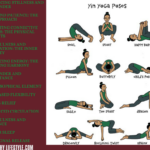How to Maintain Your Health with Food: A Guide to Nutritional Wellness

Table of Contents
- Introduction
- Understanding the Importance of Nutrition
- Building a Balanced Diet 3.1. Macronutrients and Micronutrients 3.2. The Role of Carbohydrates 3.3. Embracing Healthy Fats 3.4. The Power of Protein 3.5. Incorporating Vitamins and Minerals
- Hydration – The Forgotten Aspect 4.1. Benefits of Staying Hydrated 4.2. How Much Water Should You Drink?
- Superfoods for Optimal Health 5.1. Berries: Nature’s Antioxidant Powerhouses 5.2. Leafy Greens: A Treasure Trove of Nutrients 5.3. Nuts and Seeds: Nutrient-Rich Snack Options 5.4. Fatty Fish: The Omega-3 Source
- Meal Planning for Nutritional Success 6.1. The Art of Portion Control 6.2. Smart Substitutions for Healthier Meals 6.3. Preparing Meals in Advance
- Mindful Eating for Better Digestion 7.1. Slow Down and Savor 7.2. Listening to Your Body’s Hunger Cues 7.3. Avoiding Emotional Eating
- The Role of Supplements in a Healthy Diet 8.1. Identifying Nutritional Deficiencies 8.2. Consulting a Healthcare Professional
- Healthy Habits Beyond the Plate 9.1. Regular Exercise for Overall Well-Being 9.2. Prioritizing Quality Sleep 9.3. Managing Stress Levels
- Avoiding Common Dietary Pitfalls 10.1. Refined Sugar and its Impact 10.2. Processed Foods: Empty Calories
- Intuitive Eating: Connecting with Your Body 11.1. Trusting Your Food Instincts 11.2. Overcoming Diet Culture
- Celebrating Special Occasions Mindfully 12.1. Navigating Social Gatherings 12.2. Smart Choices at Restaurants
- The Power of Regular Health Check-ups 13.1. Preventive Measures for Long-Term Health 13.2. Identifying Potential Issues Early
- Educating Children about Nutrition 14.1. Setting Healthy Examples 14.2. Making Food Fun and Exciting
- Conclusion
- FAQs 16.1. Can I rely solely on supplements for my nutritional needs? 16.2. How do I deal with cravings for unhealthy foods? 16.3. Is it okay to indulge in treats occasionally? 16.4. Should I follow restrictive diets for weight loss? 16.5. What is the significance of organic foods in a healthy diet?
Introduction
Maintaining good health is a priority for everyone, and one of the most powerful ways to achieve this is through a well-balanced diet. Proper nutrition not only helps us stay physically fit but also plays a vital role in our mental and emotional well-being. In this comprehensive guide, we will explore the connection between food and health and provide you with practical tips on how to use food to enhance your overall well-being.
Understanding the Importance of Nutrition
Nutrition is the foundation of a healthy lifestyle. The food we eat supplies our bodies with the essential nutrients required for proper functioning. These nutrients can be broadly categorized into macronutrients and micronutrients.
Building a Balanced Diet and make health with food
A balanced diet comprises a variety of nutrients that are essential for our health and vitality.
3.1. Macronutrients and Micronutrients
Macronutrients, such as carbohydrates, fats, and proteins, are the primary components of our diet that provide energy. On the other hand, micronutrients, such as vitamins and minerals, are required in smaller quantities but play crucial roles in various bodily functions.
3.2. The Role of Carbohydrates
Carbohydrates are the body’s primary source of energy. It’s important to choose complex carbohydrates like whole grains and vegetables over simple sugars.
3.3. Embracing Healthy Fats
Healthy fats are essential for brain health, hormone production, and nutrient absorption. Include sources like avocados, nuts, and olive oil in your diet.
3.4. The Power of Protein the
Proteins are the building blocks of the body, vital for repairing tissues and supporting the immune system. Lean meats, legumes, and dairy products are excellent protein sources.
3.5. Incorporating Vitamins and Minerals
Vitamins and minerals are essential for various bodily functions. Eating a diverse range of fruits and vegetables ensures you get a broad spectrum of these nutrients.
Hydration – The Forgotten Aspect
While we focus on food, hydration is often overlooked despite being equally important for our health.
4.1. Benefits of Staying Hydrated
Water is essential for proper digestion, nutrient absorption, temperature regulation, and overall well-being.
4.2. How Much Water Should You Drink?
The amount of water you need varies based on factors like age, activity level, and climate. Aim to drink at least 8 glasses of water a day.
Superfoods for Optimal Health
Certain foods are nutritional powerhouses that offer numerous health benefits.
5.1. Berries: Nature’s Antioxidant Powerhouses
Berries are rich in antioxidants, which protect our bodies from free radicals and inflammation.
5.2. Leafy Greens: A Treasure Trove of Nutrients
Leafy greens like spinach and kale are packed with vitamins, minerals, and fiber, promoting a healthy heart and strong bones.
5.3. Nuts and Seeds: Nutrient-Rich Snack Options
Nuts and seeds are excellent sources of healthy fats, protein, and essential minerals like magnesium and zinc.
5.4. Fatty Fish: The Omega-3 Source
Fatty fish, such as salmon and mackerel, are rich in omega-3 fatty acids, benefiting brain and heart health.
Meal Planning for Nutritional Success
Meal planning is a strategic approach to ensure you consistently consume nutritious meals.
6.1. The Art of Portion Control
Managing portion sizes helps prevent overeating and ensures you consume a well-balanced meal.
6.2. Smart Substitutions for Healthier Meals
Replace unhealthy ingredients with healthier alternatives to improve the nutritional value of your meals.
6.3. Preparing Meals in Advance
Cooking in batches and storing meals for the week saves time and helps you avoid unhealthy choices.
Mindful Eating for Better Digestion
Practicing mindful eating improves digestion and prevents overindulgence.
7.1. Slow Down and Savor
Take your time to enjoy each bite and savor the flavors and textures of your food.
7.2. Listening to Your Body’s Hunger Cues
Pay attention to your body’s signals of hunger and fullness, and avoid eating out of boredom or emotions.
7.3. Avoiding Emotional Eating
Seek alternative ways to cope with emotions instead of turning to food for comfort.
The Role of Supplements in a Healthy Diet
While a balanced diet should provide most nutrients, supplements can be beneficial under certain circumstances.
8.1. Identifying Nutritional Deficiencies
Consult a healthcare professional to identify any nutritional deficiencies you may have.
8.2. Consulting a Healthcare Professional
Before taking any supplements, it’s essential to seek guidance from a healthcare professional.
Healthy Habits Beyond the Plate
A holistic approach to health includes lifestyle factors beyond diet.
9.1. Regular Exercise for Overall Well-Being
Engaging in physical activity regularly improves cardiovascular health, mood, and overall vitality.
9.2. Prioritizing Quality Sleep
Adequate sleep is crucial for cell regeneration, cognitive function, and immune health.
9.3. Managing Stress Levels
Chronic stress negatively impacts overall health. Find healthy ways to manage stress, such as meditation and yoga.
Avoiding Common Dietary Pitfalls
Steer clear of unhealthy choices that can undermine your nutritional efforts.
10.1. Refined Sugar and its Impact
Reduce your intake of added sugars, as they contribute to various health issues.
10.2. Processed Foods: Empty Calories
Limit processed foods high in salt, sugar, and unhealthy fats, which lack essential nutrients.
Intuitive Eating: Connecting with Your Body
Listen to your body’s needs and practice intuitive eating for a healthy relationship with food.
11.1. Trusting Your Food Instincts
Your body knows what it needs. Trust yourself to make wise food choices.
11.2. Overcoming Diet Culture
Reject restrictive diets and embrace intuitive eating to improve your overall well-being.
Celebrating Special Occasions Mindfully
You can still enjoy celebrations while staying mindful of your health goals.
12.1. Navigating Social Gatherings
Make wise food choices during social events, and focus on enjoying the company of others.
12.2. Smart Choices at Restaurants
Opt for healthier options at restaurants and avoid excessive indulgence.
The Power of Regular Health Check-ups
Preventive measures are vital for long-term health and well-being.
13.1. Preventive Measures for Long-Term Health
Regular health check-ups help identify potential health issues before they become serious.
13.2. Identifying Potential Issues Early
Early detection and treatment significantly improve health outcomes.
Educating Children about Nutrition
Instill healthy eating habits in children from an early age.
14.1. Setting Healthy Examples
Be a role model for your children by practicing healthy eating habits.
14.2. Making Food Fun and Exciting
Introduce a variety of nutritious foods in creative and enjoyable ways to children.
Conclusion
A healthy diet is the cornerstone of overall well-being. By understanding the importance of nutrition and making mindful food choices, you can enhance your health and vitality. Remember to prioritize hydration, incorporate superfoods, practice meal planning, and maintain healthy lifestyle habits. By embracing a balanced approach to nutrition, you can achieve long-lasting health benefits and lead a vibrant life.
FAQs
16.1. Can I rely solely on supplements for my nutritional needs?
While supplements can be helpful in certain situations, they should not replace a well-balanced diet. It’s essential to obtain nutrients from a variety of whole foods.
16.2. How do I deal with cravings for unhealthy foods?
Occasional cravings are normal, but you can manage them by finding healthier alternatives or allowing yourself small portions of your favorite treats.
16.3. Is it okay to indulge in treats occasionally?
Yes, indulging in treats in moderation is perfectly fine. The key is to enjoy them in small quantities and balance them with nutritious foods.
16.4. Should I follow restrictive diets for weight loss?
Restrictive diets can be unsustainable and may lead to nutrient deficiencies. Focus on a balanced diet and portion control for healthy and sustainable weight management.
16.5. What is the significance of organic foods in a healthy diet?
Organic foods can reduce exposure to pesticides and chemicals, but the most critical factor is overall dietary diversity and balance.









